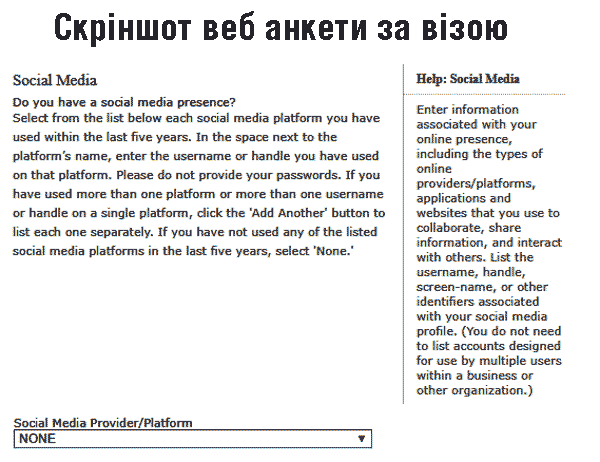
On 2 March 2022, the UN General Assembly passed a resolution condemning Russia’s invasion of Ukraine and labeling it an act of aggression.
Since then, the Russian army has reportedly subjected Ukrainian citizens under Russian occupation to filtration camps designed to weed out politically dangerous or ideologically unreliable elements of Ukrainian society.
According to the Byline Times, the filtration camps are part of a larger Russian scheme to restock Russia’s depleted labor force using what amounts to forcibly imported Ukrainian labor.
For its part, the Russian government has denied that is forcibly deporting Ukrainian citizens to Russia, instead referring to the deportations as “evacuations”.
However Moscow chooses to paint the picture, these activities represent a flagrant violation of at least 23 articles of International Humanitarian Law.
By forcibly detaining Ukrainian civilians, torturing them, taking away their documents, separating family members and deporting them to Russia, the Russian military occupation authorities in Ukraine are also committing a number of war crimes
The establishment and operation of filtration camps contravenes all international norms and is in complete violation of all international laws as well as the principles that underpin them.
Numerous incidents of forced mass deportations of Ukrainian citizens to the territory of the Russian Federation, including the separation of family members, have already been documented.
Almost two million Ukrainian citizens, including 200,000 children, have been forcibly deported to Russia to date, according to the Ukrainian Parliament’s Commissioner for Human Rights Lyudmyla Denisova.
During a briefing in Kyiv on May 9, Denisova said that as many as 20,000 Ukrainian citizens are sometimes held in a single filtration camp. Ukrainian citizen must receive three certificates in order to move about freely in Russian occupied territory: One that confirms filtration, a second that serves as a local pass, and a third in order to leave the area where the filtration camp is located. According to Denisova, nothing is known of the fate of those who do not pass filtration.
From the Ukrainian port town of Mariupol alone, as many as twenty to thirty thousand Ukrainian citizens have been deported to Russia or Russian occupied territories, according to Mariupol Mayor Vadym Boychenko, who offers a graphic description of the departure conditions: “There is a checkpoint near the village of Mangush, where the traitors stand … Russian troops have done everything to ensure that there are no buses left in Mariupol … They reduced 150 new buses to ashes.”
Conditions at the camps themselves are no better, according to Mariupol resident Maria Vdovychenko: “The camp is not a settlement, it’s just a convoy of cars. There were 500 cars in a line in front of us, thousands more behind us. Getting out of cars, looking for food, water, going to the toilet was forbidden. Soldiers with weapons went everywhere, making threats and checks, ensuring that everyone was present … People were deprived of food and warm clothes…sometimes not all the passengers from a car had been filtered: They would pull out the father or mother, and the car had to move on. People were confused…They [the Russian soldiers] just walked, talked to each other, discussed women who had been tortured. I heard conversations between them: ‘What about that one who was stopped, where did you take him?’ They asked each other. ‘I shot him and around 10 other people, maybe more. I’m too tired to remember how many.’”
“One man who went through the filtration came out with huge, frightened eyes. He was trembling. He said he was severely interrogated and beaten. He was alone because his wife was never released…Due to the beating during filtration, my father lost his sight. He was asked for documents, fingerprints, undressed and searched. They began to interrogate him, pressurize him. When they saw that his phone had been erased, the questions began: ‘Why has the phone been erased? What are you hiding? We do not believe you!’ And he was just hit on the head. He does not remember by whom or by what. He remembers only how he found himself on the street. My father lost his sight from that beating, and we still had to move on.”
In Russian filtration camps, Ukrainian citizens are even forced to take part in hostilities against their own country, prisoners of war are coerced to serve in the armed forces of the enemy. For example, a group of “recruiters” arrived in occupied Kherson. Among them were
Russian FSB officers, KGB officers from the breakaway DNR (Donetsk People’s Republic) and members of the Liga, formerly known as The Wagner Group. Their task was to find people who would agree to work for the DNR special services.
But during their visit, they also made an example of local Ukrainian patriots, torturing and killing up to 50 Ukrainian civilians.
To date, a total of about 120 residents of Kherson have been abducted, and their whereabouts are still unknown. On May 12th, the visitors arrived at a local jail “to mobilize” inmates. Witnesses recall hearing automatic weapons being fired.
In the village of Bezymenne, in Donetsk Region, the Russians offered people monetary compensation for destroyed housing in exchange for agreeing “to testify” against Ukrainian defenders in Mariupol.
Given these and other incidents, it’s clear that Russian filtration activities are completely illegal and against all international norms. Moreover, the widespread use of torture and mistreatment perpetrated by Russians in these camps directly contravenes International Humanitarian Law.
Premeditated murder, torture, inhumane treatment, intentional infliction of severe suffering, grievous bodily harm, rape, enslavement, forced deportation and cruel deprivation of physical liberty can be considered war crimes.
And the persecution of Ukrainians as a people on the basis of their ethnicity, culture and national identity is tantamount to genocide.
And it is precisely genocide and crimes against humanity that are being committed in Russian filtration camps that should be of the most concern to the international community. The actions of the Russian military and other officials of the Russian Federation are of a nature that place them in the jurisdiction of the International Criminal Court.
Ukraine has officially filed a lawsuit against the Russian Federation in the UN International Court of Justice in The Hague. This is just the beginning of the legal consequences for Russia for its crimes against Ukrainians, their history, national dignity, the right of the Ukrainian nation and state to exist.
Svitlana Sydorenko is a military lawyer in reserve who served as a First Lieutenant of justice at the General Staff of the Ukrainian Armed Forces.

